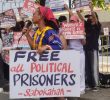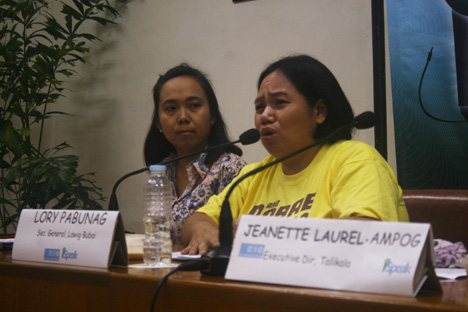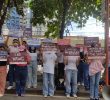After Damagan residents were interrogated, they were forced to stay in one house for two days. On the second day, the soldiers left and went to the hilly side.
“Suddenly there were firings. We can still see them, firing and running around. After an hour, a helicopter came and dropped bombs on the village, which made the children cry,” Balagisi said.
“But it seemed they didn’t have enemies because there was no firing back from the other side. So, it was just the troops that kept on firing,” he said.
It was the same thing in Nasilaban, according to Kaylo.
“Soldiers just passed by in our community. Then, not far away, the soldiers started to fire a few shots. There was no answer from the other side,” he said. After that, they also saw a helicopter dropping three bombs in their vicinity.
Destroyed culture

First Lieutenant Arthur Alluigan, commanding officer of Bravo company under the 73rd Infantry Battalion-PA. (davaotoday.com photo by Jonald Mahinay)
Pasaka, Sagip and other network organizations conducted an interfaith mercy mission in the affected communities on February 22-24 to provide various forms of assistance, including medical check-ups, psycho-social sessions for children and distribution of relief goods to residents.
Residents appealed to the military that the best compensation they can give is to stop the military operation in their area.
“They should respect the lumads,” said Manoling Tingkas, the tribal leader of sitio Basagan and also the spokesperson of Salugpongan. “This can destroy an entire culture. Our livelihoods are destroyed too. Imagine the soldiers ruin your house so that they can have firewoods to cook the chickens.”
Tingkas lost his two-year-old kid, Dondon, after seven days of staying in the forest without food and sleeping on the ground, unprotected from heat and rain.
“Now, the military should think how painful it is to lose a son,” he said. (Grace S. Uddin/www.davaotoday.com)










